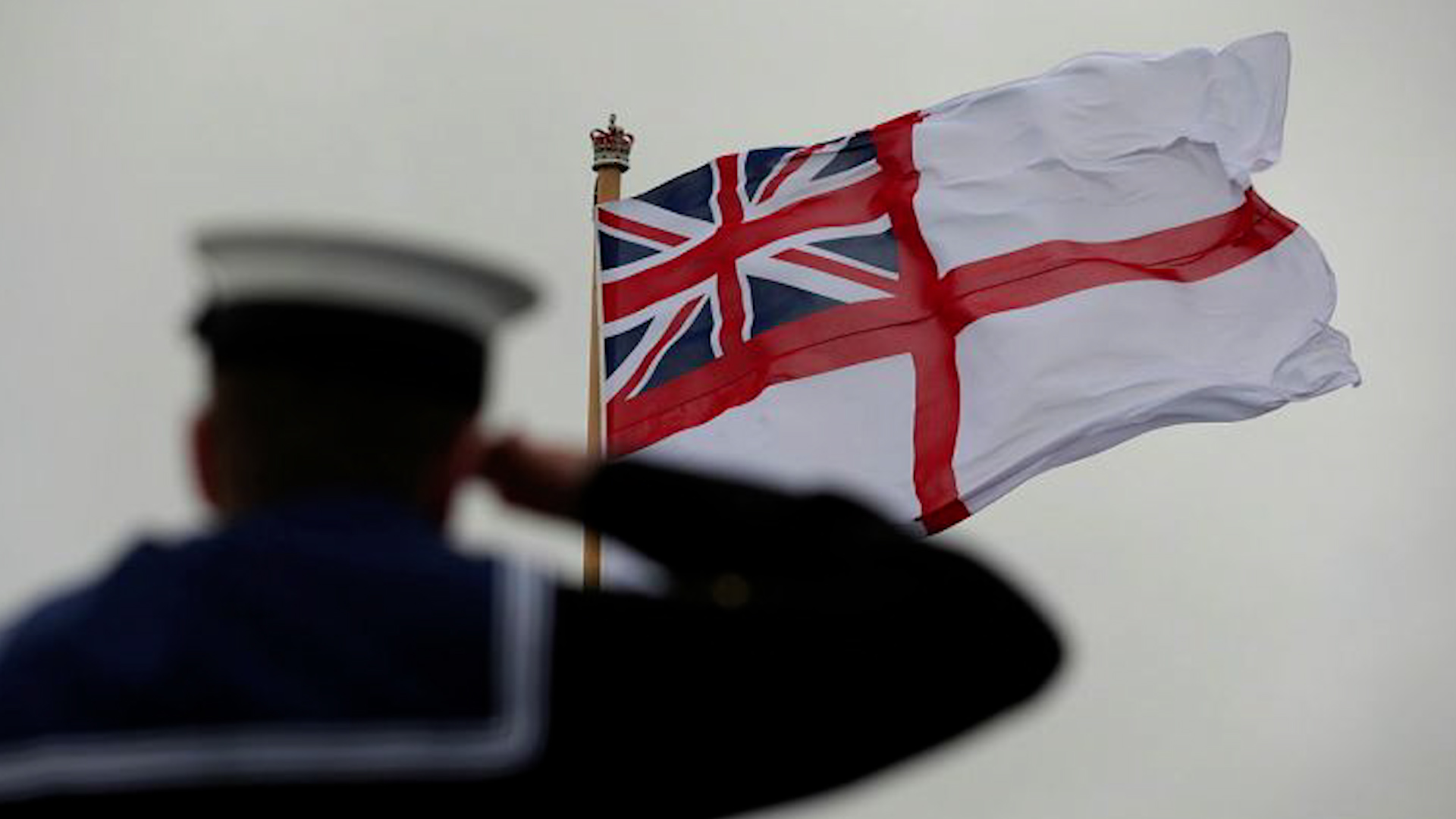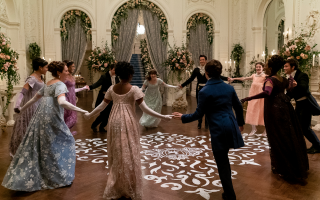
Royal Navy offer must improve to attract and retain staff – you can't motivate an empty chair

After recently retiring from the Royal Navy, Commodore Steve Prest says the service must improve its offer in order to recruit and retain sufficient numbers of the right people.
The former Director of Navy Acquisition says, no matter how good a leader one might be, you can't motivate an empty chair.
I retired from the Royal Navy on 1 April 2024 having served as an officer for 24 years and 289 days.
I joined the Royal Navy after reading Electronic and Electrical Engineering at Loughborough University and had an unusual entry into the Navy – I joined on 23 June 1999 on my own.
I was not part of a New Entry Division. I wasn't lined up on the Parade Square at Britannia Royal Naval College, Dartmouth – I pulled up to the front door of the college, reported to the hall porter and announced myself as "here to join the Navy".
He was a little surprised and was quite insistent that I couldn't park my car just outside the front door, having driven it up the ramps to find out where I ought to be.
If you know, you know! The reason for all of this was that I had been invited to undertake an exchange with the French Navy and my New Entry training was to be conducted at the Ecole Navale in Brittany from that September.
I therefore had a few weeks to draw my kit, get into the swing of being in the Navy and, above all, try to learn some French!
I think I achieved most of the first two but not enough of the latter to make the next few months comfortable. Nonetheless, off I went and nigh on 25 years later here I am.

In the intervening period I have been in the business of delivering military capability for the UK Armed Forces, and I have extensive experience of doing so from the laboratory bench to the frontline.
When not engaged in derring-do on the high seas, my career has largely been anchored in Capability and Acquisition in the MOD and Navy Command HQ.
To mark the end of this phase of my professional life, I wanted to jot down some thoughts on the current state of play in the Navy and what might be needed in the future.
I'm going to start with the Navy's people.
Far too often we talk first about other things and leave the people as an afterthought.
Yes, our ships, submarines and aircraft are essential, but without a ship, a sailor is just an aggressive long-distance swimmer!
And without people, even in this age of autonomy and artificial intelligence, the Navy is wholly impotent. We ask, as we always have, a lot of our people.
But the tempo of operations has continued to ratchet up and the offer hasn't kept pace.
Despite the good intentions of various transformation initiatives, we are working our sailors harder, demanding ever greater professionalism, and increased responsibility and accountability from even our most junior personnel.
We must improve the offer in order to recruit and retain sufficient numbers of the right people – no matter how good a leader one might be, you can't motivate an empty chair.
There are moves afoot to do this, the implementation of the Haythornthwaite recommendation for example, but it will not be cost-neutral and needs to fundamentally rethink the relationship with our people: what we expect from them and how we reward them.
A book I read early on in my time was The Wooden World by the historian NAM Roger. It's a wonderful book about the Georgian Navy.
He posited that sailors have always joined and stayed in the Navy for one reason: that it is better than the alternative.
What was true for Nelson's Navy is true today, and those charged with leading defence must make the offer better than the alternative if we are to succeed.
We must also make better use of untapped pools of talent and potential.
Women and people from ethnic minorities are woefully under-represented in our service.
To be clear, this is not an exercise in political correctness or wokery, but we need people to serve, and we need the best people to join and stay.
There are, it is demonstrably true to say, headwinds faced by people in such minority groups that we need to take positive action to remove.
Creating a true meritocracy and a place where everyone genuinely belongs is, axiomatically, going to create a stronger service and better fighting capability.
MP Sarah Atherton described in a recent report that the Armed Forces presented a "hostile environment for women".
The only people who should be creating a hostile environment for our people are the enemy – under no circumstances should we be doing the enemy's job for them.
We could and must do better. We must realise the potential of every individual available to us and thereby maximise the performance of the team.
In an organisation whose purpose is to fight our nation's enemies, anything else is a dereliction of duty.
We have the leaders and the know-how to do this, but it takes purposeful effort and application.
We have an exciting equipment programme ahead of us.
Yes, it is overheating as our ambition outstrips our wherewithal to deliver it – but that has always been the case throughout history and, in my opinion, it always will be.
It is a feature of the system. Peacetime navies are expensive. But they are strategic national assets and when they are needed it is too late to wish we'd started building sooner.
If you think a peacetime Navy is expensive, try having a war!
We currently have 16 ships ordered, on contract and being built for the Navy: 13 frigates and three RFA Fleet Solid Support Ships; along with mine-counter measures systems based on uncrewed boats and robot submarines; not to mention the Dreadnought class submarines, the finishing of the Astute programme and the new AUKUS SSNs whose design is underway.
These will be brilliant ships for our people to serve in and a leap forward in capability from what we have now.
Will there be teething troubles? Sure, there always are, but don't let the naysayers talk these platforms down.
They are the ships we need and the sooner the better.
But, contrary to what I have heard many senior officers opine over the years, the Navy is not all about ships at sea.
Ships at sea are a necessary but not sufficient condition for delivering military effect in and from the maritime environment.
If you think the tip of the spear is the only important component of that weapon, then you don't understand how spears work!... I will halt the analogy there or someone's going to start thinking about 'shafts' and there will be sniggering from the marine engineers!
But, we do need a refocused effort to address our infrastructure (including accommodation), training, logistics (including stockpiles), support, HR processes, and digital services such that they are fit to receive and enable the new fleet which is coming and the people that we need to serve in it.
It is always tempting to eschew these things in preference for maximising force structures but we are running out of elastic and they need addressing if we are not to be found wanting.
I don't know what is around the corner, geopolitically speaking, but the world is an ever more unstable and dangerous place.
Our island nation needs a strong Navy, as it always has, to ensure its security and prosperity.
There are many challenges but much cause for optimism too.
As I mentioned, a shortage of people, money and enterprise capacity to deliver has dogged the Admiralty since its inception.
These are problems to be managed not puzzles to be solved.
The proud tradition of our service is built on getting the job done anyhow. Admiral James Stockdale, a UN Navy fighter pilot, put it well.
He said that the key to achieving difficult things is that "you must maintain unwavering faith that you can and will prevail in the end, regardless of the difficulties, and at the same time, have the discipline to confront the most brutal facts of your current reality, whatever they might be".
This means that we cannot afford magical thinking or Panglossian optimism. But neither is there any room for despair.
We should take heart from the ingenuity, resilience and courage of our people who are driven to deliver a mission which we all believe truly matters.
We should be proud of our ships, submarines, aircraft and commando forces and the work that they do.
Our people and our service will rise to overcome the challenges and will surprise anyone who underestimates them!
But there is no room for complacency – we must be brutally honest with ourselves about what must be done; and then get on and do it.
Our Navy must maintain excellence as its habit in all that it does; ensure that it works as a team where we look out for our oppos and to which everyone truly belongs; and maintain a level of integrity where we always have the courage to always do the right thing – and not the easy thing.
That is what I have aspired to do over my 25 years in 'the Mob'.
I am proud of my service, just as I am proud of the Navy that I have served in, and of every man and woman who has served alongside me.
I now need to work out what I want to do when I grow up!
Commodore (Ret'd) Steve Prest is an independent consultant and advisor who can be found on X as @fightingsailor.
In his almost 30 years of service, he has garnered extensive experience in the business of delivering military capability for the UK Armed Forces.
He is an expert in Capability and Acquisition and has been the Senior Responsible Owner of several major defence programmes.







